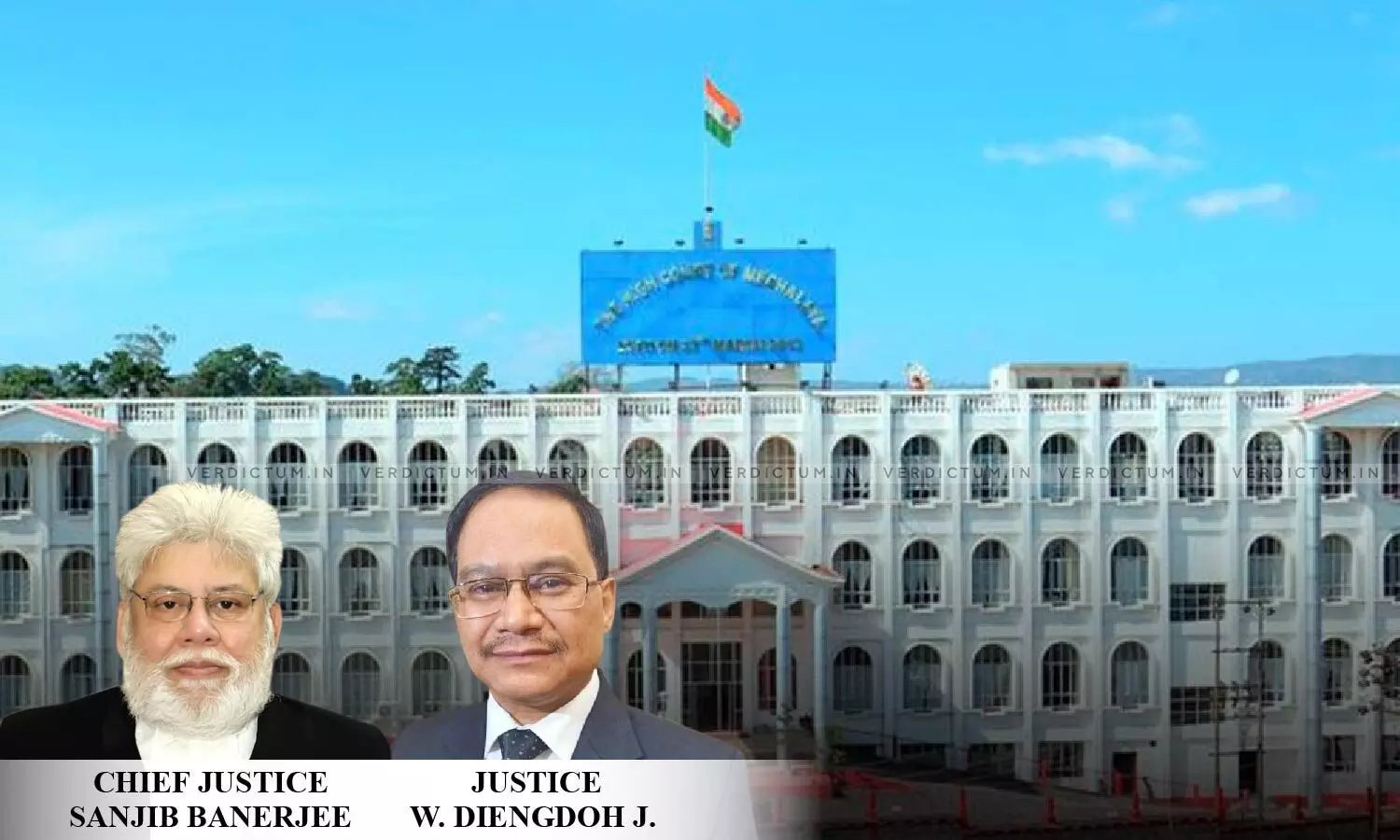
Transfers Of Government Employees Cannot Be Stopped On Flimsy Ground Of Age Or Infirmity Of Elderly Parent- Meghalaya HC
 |
|The Meghalaya High Court has observed that the transfer of government employees cannot be stopped on the ground of age or infirmity of elderly parents and that the functional criticality or administrative requirement should be given priority over other considerations.
The bench of Chief Justice Sanjib Banerjee and Justice W. Diengdoh observed that "transfers cannot be stopped on the flimsy ground of age or infirmity of elderly parents of government employees. It is but natural that with advanced age, a person would be suffering from some form of disability and it is not an extraordinary situation that the writ petitioner was faced with."
In this case, the appeal has been preferred against the interim order passed in a Writ petition, filed by the respondent-writ petitioner, whereby the Court ordered to maintain the status quo with regard to the transfer of the respondent. A representation was made by the respondent citing the ill health of his aged mother as a ground to allow him to continue in his present place of posting.
Senior Advocate V.K. Jindal appeared on behalf of the Appellants.
Senior Advocate P.J. Saikia appeared on behalf of the respondent and it was submitted that the transfer rules require certain committee to be constituted to look into the representation of an employee resisting the transfer order but the constitution of such committee was inappropriate and that it is not clear whether any committee was constituted at all for the purpose of going into the merits of the respondent's representation.
The Court observed that to resist the transfer orders special grounds are to be cited such as, education of children, aged parents, employment of spouse and the medical conditions as defined in NEEPCO Medical Attendance Rules but no such special medical condition was mentioned by the respondent and that the case of the employee was not a case of any extraordinary ground for resisting the transfer as the respondent's mother was aged and infirm and suffered from a permanent disability
The Court further observed that, as per Rule 15.1, the functional criticality or requirement of the employer would have overriding priority over anything else and that "the refusal by the employer to accede to the writ petitioner's request would imply that the functional criticality or the administrative requirement of transferring the writ petitioner outweighed other considerations."
The Court also observed that "the writ petitioner in the present case has abused the process to obtain undeserving orders of status quo to stall his transfer and the time of joining his transferred place of posting." and also expressed that "It is too late in the day to emphasise that the High Court's authority to interfere in matters of transfer is very limited and unless a case of egregious mala fides is made out, the High Court must yield to the administrative reasoning of the employer."
Accordingly, the Court allowed the Appeal citing that there was no merit in the grounds urged by the writ petitioner.
Cause Title- North Eastern Electric Power Corporation Ltd (NEEPCO) & Ors. v. Bidul Goswami
Click here to read/download the Judgment